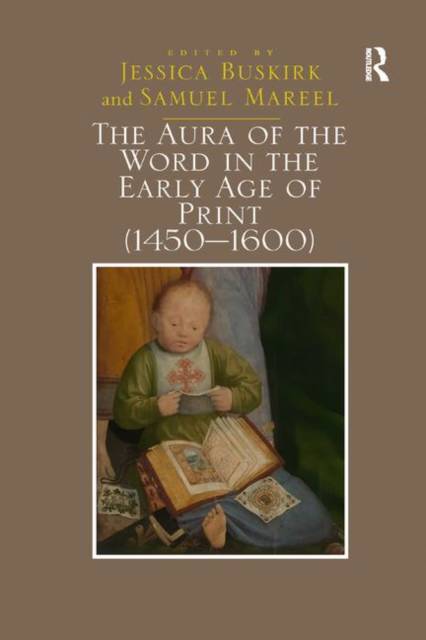
Bedankt voor het vertrouwen het afgelopen jaar! Om jou te bedanken bieden we GRATIS verzending (in België) aan op alles gedurende de hele maand januari.
- Afhalen na 1 uur in een winkel met voorraad
- Gratis thuislevering in België
- Ruim aanbod met 7 miljoen producten
Bedankt voor het vertrouwen het afgelopen jaar! Om jou te bedanken bieden we GRATIS verzending (in België) aan op alles gedurende de hele maand januari.
- Afhalen na 1 uur in een winkel met voorraad
- Gratis thuislevering in België
- Ruim aanbod met 7 miljoen producten
Zoeken
The Aura of the Word in the Early Age of Print (1450�1600)
Jessica Buskirk, Samuel Mareel
Paperback | Engels
€ 83,95
+ 167 punten
Uitvoering
Omschrijving
Did the invention of movable type change the way that the word was perceived in the early modern period? In his groundbreaking essay "The Work of Art in the Age of Mechanical Reproduction," the cultural critic Walter Benjamin argued that reproduction drains the image of its aura, by which he means the authority that a work of art obtains from its singularity and its embeddedness in a particular context. The central question in The Aura of the Word in the Early Age of Print (1450-1600) is whether the dissemination of text through print had a similar effect on the status of the word in the early modern period. In this volume, contributors from a variety of fields look at manifestations of the early modern word (in English, French, Latin, Dutch, German and Yiddish) as entities whose significance derived not simply from their semantic meaning but also from their relationship to their material support, to the physical context in which they are located and to the act of writing itself. Rather than viewing printed text as functional and lacking in materiality, contributors focus on how the placement of a text could affect its meaning and significance. The essays also consider the continued vitality of pre-printing-press kinds of text such as the illuminated manuscript; and how new practices, such as the veneration of handwriting, sprung up in the wake of the invention of movable type.
Specificaties
Betrokkenen
- Auteur(s):
- Uitgeverij:
Inhoud
- Aantal bladzijden:
- 232
- Taal:
- Engels
Eigenschappen
- Productcode (EAN):
- 9780367880170
- Verschijningsdatum:
- 12/12/2019
- Uitvoering:
- Paperback
- Formaat:
- Trade paperback (VS)
- Afmetingen:
- 156 mm x 234 mm
- Gewicht:
- 353 g

Alleen bij Standaard Boekhandel
+ 167 punten op je klantenkaart van Standaard Boekhandel
Beoordelingen
We publiceren alleen reviews die voldoen aan de voorwaarden voor reviews. Bekijk onze voorwaarden voor reviews.












